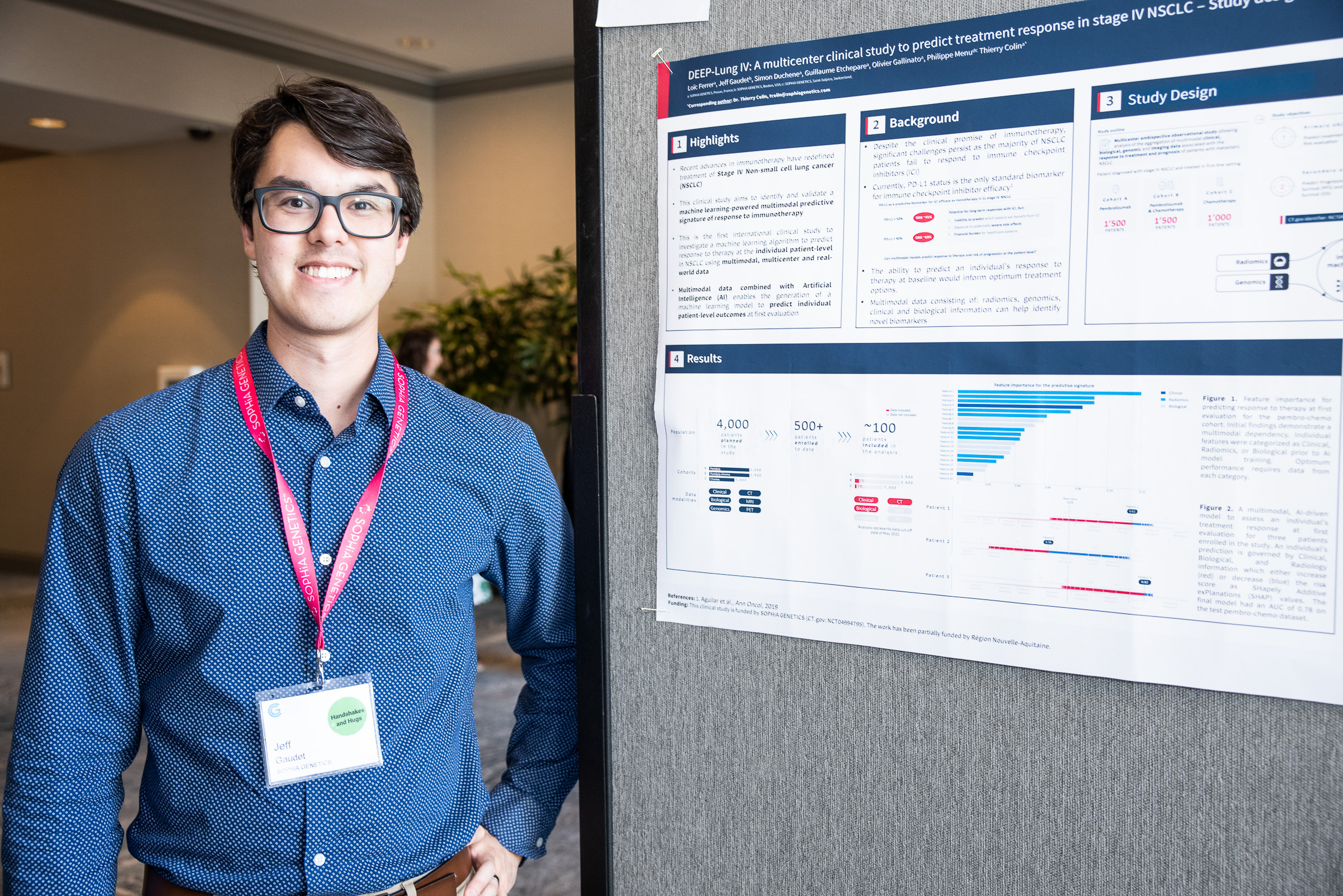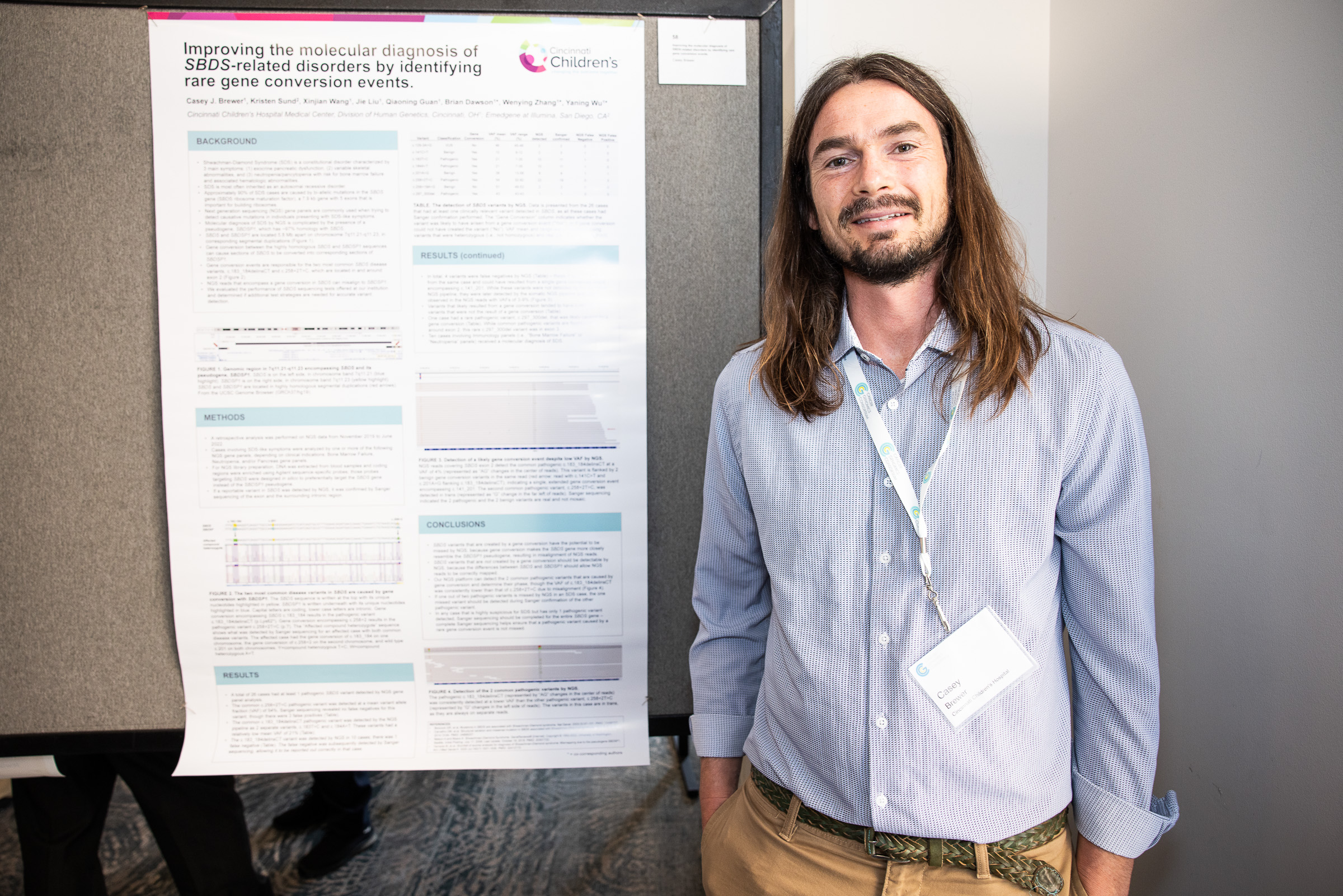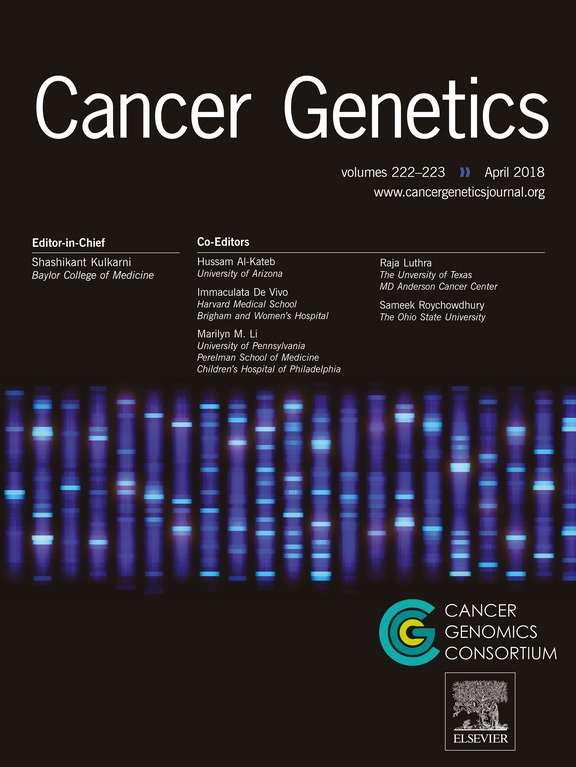2023 Abstracts
2023 CGC Annual Meeting Abstract Submission Instructions and Topics
The CGC 2023 Abstract Submission Deadline has Passed
Abstract acceptance notifications will be sent by late April.
Thank you for your submissions! CGC received the second highest
number of submissions in the history of the organization!



Abstract Submission Instructions:
Abstracts should represent original scientific research.
Abstract submission is for both Oncology and Constitutional topics. Suggested topics are found below. Abstracts will be considered outside these topics.
There is a 250 word limit on the text in the body of submitted abstracts.
Accepted abstracts will be designated as poster presentations, platform presentations, or speed talks with a poster.
All accepted abstracts will be published in Cancer Genetics.
Abstracts must be submitted by Tuesday, February 28, 2023, 11:59 PM (midnight) Pacific Standard Time.
Abstract acceptance notifications are expected to be sent in mid-April.
Presenting authors of accepted abstracts must register and pay for meeting attendance by
April 17, 2023to secure abstract publication in Cancer Genetics. CHANGED TO May 10, 2023.Trainees and technologists may apply for travel grants.
While in the submission module, if you need to return to a previous page in the submission process, please use the back arrow on your browser.
Abstracts are selected based on scientific rigor.
Abstracts commercial in nature will not be accepted. Companies who choose to support the meeting have other opportunities to present data about specific products, including the Industry Poster Session, which is only available to those companies supporting the CGC Annual Meeting.
If you have challenges with your submission, please email admin@cancergenomics.org.
2023 Abstract Submission Topics:
Applications of Emerging Technologies in Clinical Genomics
Including but not limited to whole genome, exome and targeted sequencing, optical genome mapping, long-read DNA/RNA technologies, spatial transcriptomics, methylation sequencing, liquid biopsies, cell-free analysis, proteomics and cyTOF, metabolomics and other “omics”, laboratory automation; includes applications for both research discovery and implementation in clinical labs
General Laboratory Technical Topics
Including Clinical Assay Development and Validation, Laboratory Improvement, Quality Metrics, Procedures, Testing Algorithms, Working Groups and Guidelines, Biomarker Discovery and Detection in the era of targeted therapy, Pharmacogenomics; cost-effectiveness analysis, cost-benefit/cost-utility analysis, resource utilization, epidemiology of cost and delivery of care, lab decision-making
Solid Tumors (Testing Algorithms, Cases, and/or Clinical Management)
Including but not limited to the discovery, development and applications of biomarkers and genomics for improving diagnosis or prognosis of solid tumors, targeted therapeutics including immunotherapy, clinical correlations, risk factors, other aspects of disease biology including preclinical and mechanistic studies focused on development of novel biomarkers; diagnostic work-up and testing algorithms, practice guidelines; genomic applications in updated diagnostic criteria and prognostication; molecular diagnostic tools for minimal residual disease detection, Tumor Mutational Burden
Hematologic Malignancies
Including but not limited to the discovery, development and applications of biomarkers and genomics for improving diagnosis or prognosis of acute and chronic leukemias, lymphomas, clonal hematopoiesis (CHIP, CCUS), targeted therapeutics including immunotherapy, clinical correlations, risk factors, other aspects of disease biology including preclinical and mechanistic studies focused on development of novel biomarkers; diagnostic work-up and testing algorithms, practice guidelines; genomic applications in updated diagnostic classification (WHO, ICC, NCCN) and prognostication; molecular diagnostic tools for minimal residual disease detection
Bioinformatics, Artificial Intelligence, Machine-Learning
Development, exploration and integration of new computational methodologies and ML algorithms for analysis and interpretation to improve diagnostics and therapeutics, novel applications in both research and clinical laboratories, applications in drug interaction and development, Electronic Health Records, integration and reporting of genomic data into EHR, challenges in informatics, computer-aided decision making
Germline and other predisposing risk-factors for cancer, somatic mosaic disorders and constitutional disorders
Including but not limited to new discoveries for diagnosis, detection approaches, genotype-phenotype correlations and clinical findings, incidental findings of clinical significance during routine testing, genetic counseling and management, polygenic risk scores, Hereditary Cancer Syndromes, Cancer Predisposition, New Candidate Genes, Vascular Anomalies, Tissue Overgrowth Syndromes, Clonal Hematopoiesis, Inherited Cardiomyopathies
Genomic resources for variant curation and standardization
Including but not limited to expert variant curation, standardization, computational resources for genome interpretation and prediction of oncogenicity and drug interactions, open-source knowledge bases for standardized interpretation, applications in molecular tumor boards and other clinical scenarios.
Regulatory and Ethical Consideration in Genomic Testing
Guidelines and Regulatory Compliance, Economic Affairs (e.g., Billing, Coding, Reimbursement), Resource Utilization, Social and Ethical Considerations, Challenges in Reporting, Work-flow Optimization
Genomics of Infectious Diseases
Other Oncology and Constitutional Topics
Including but not limited to Disparities in Genomic Testing, Diversity, Equity and Inclusion, other topics not covered in the above sections
Please do not hesitate to submit an abstract that does not fit into a category above.



